Themes: Universe and gravitation
See all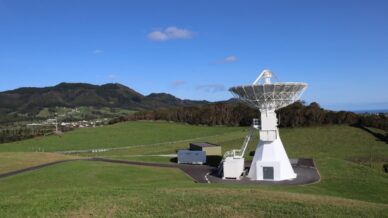
From Azores to the Universe
A PhD student at IA contributed to launching the astrophyskcal observations programme of the RAEGE-Az radiotelescope, on Santa Maria island, Azores.
Read more
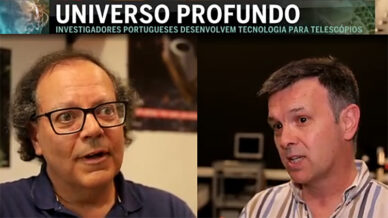
Technologies to uncover the deep Universe
Four IA researchers talked about the deep Universe and the technologies being developed to uncover its secrets.
Read more
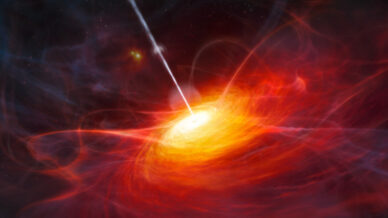
Lighthouses in the cosmic vastness – the science of blazars
Blazars are sources of powerful jets, aimed at Earth, shot by black holes that concentrate the mass of a billion suns. These rare phenomena are ideal labs to explore the science of very high energies, explains Bruno Arsioli on National Geographic
Read more
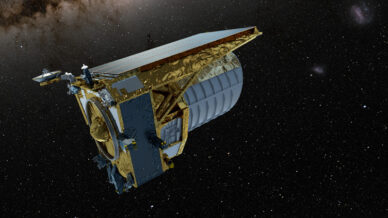
Euclid and the invisible Universe – two conversations
Ismael Tereno and António da Silva, both researchers at IA, talked about the Euclid space mission and the 95 percent of the Universe still unknown – the dark matter and the dark energy – to Antena 1 public radio and Palavra de Cientista podcast.
Read more
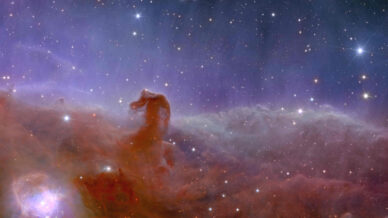
Revealed – and commented – the first images of the Euclid mission
Three IA researchers and members of the Euclid Consortium comment the first coloured images of the Euclid space mission. Dive into these images and learn about them in detail in the article published on National Geographic Portugal.
Read more
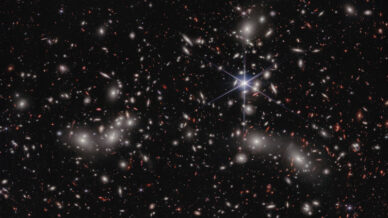
Caught in the cosmic web – from galaxies to super-clusters
Galaxies like to be together and socialize, sometimes to the thousands. In galaxy clusters some are dominant, but what keeps them together can’t be seen. Article by Davi Barbosa on National Geographic Portugal
Read more
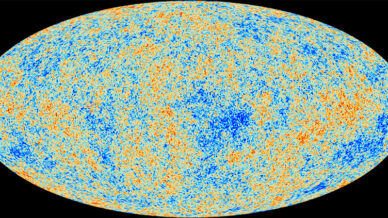
Unearthing fossils from the Big Bang: the Cosmic Microwave Background
There’s a light that fills the whole Universe. It’s the oldest light. As a fossil, it is an image with information about the origins and up to the first galaxies, explains Elsa Teixeira, in her article on National Geographic Portugal website.
Read more
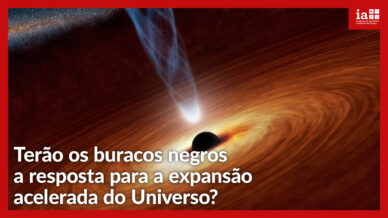
Do black holes have the answer to the accelerated expansion of the Universe?
An international team, with the participation of the IA, suggests that the mass of black holes increases with the scale of the Universe, and might be concentrations of dark energy.
Read more

